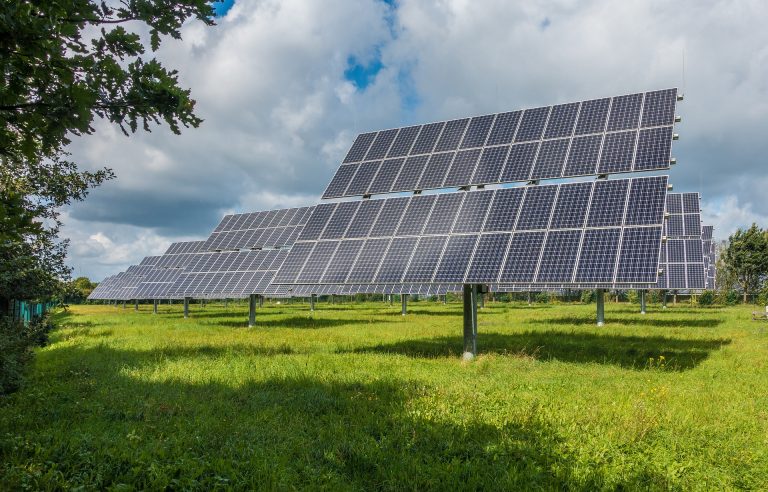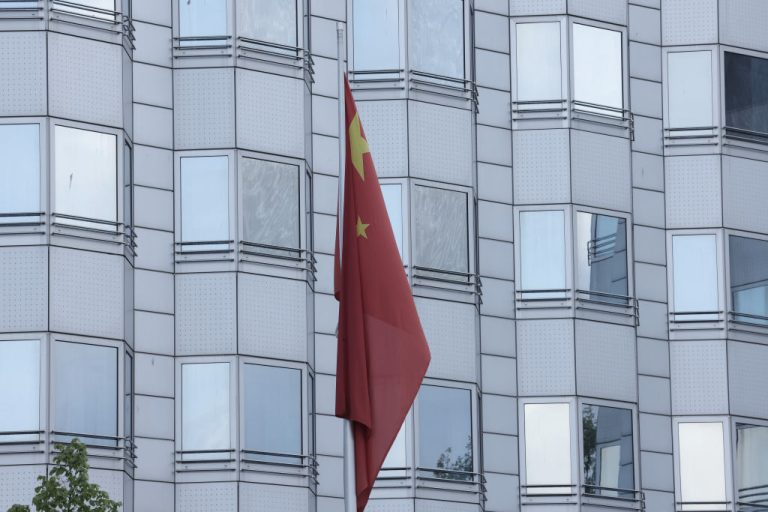China has been known to use the Uyghur community in Xinjiang for slave labor, especially in cotton production. However, Uyghur slave labor is apparently being used in the manufacture of solar panels as well, according to a slew of new reports. The vast majority of photovoltaic cells (PVC) that are used in the production of solar panels are made using polysilicon components, and 82% of the world’s polysilicon is produced in China.
Almost all solar panels manufactured in China use polysilicon made in Xinjiang. Even if the solar panels are manufactured outside of China, chances are that they likely use Xinjiang-produced polysilicon. Almost half of the world’s production of polysilicon is accounted for by just four factories located in the Xinjiang region. The factories are located close to “reeducation” camps, making it highly likely that Uyghur inmates in detainment centers are forced to work there.
The Chinese regime has tried to portray such forced labor as voluntary “training” that will help ethnic minorities, but Rune Steenberg, a Xinjiang expert based in Berlin who works with the Uyghur diaspora, dismissed such justifications: “It has become almost impossible to talk of voluntary labor among a group of people who are in immediate danger of being incarcerated for no reason whatsoever…There would be repercussions against your family and potentially against you…You would be marked as someone who’s uncooperative,” he said to Bloomberg.
A recent report by consultancy firm Horizon Advisory exposed ties between potential forced labor and major Chinese solar companies like GCL-Poly, East Hope Group and Jinko Solar. The report states that GCL-Poly, the world’s second-biggest maker of polysilicon, accepted “surplus labor” from Xinjiang in 2020. A 2018 article published on a local website shows one of the company’s subsidiaries accepting over 60 such workers.
Jinko Solar subsidiary firm Xinjiang Jinko Energy Co. employed Xinjiang labor in return for state subsidies. A subsidiary of East Hope employed 225 ethnic minority workers from Xinjiang. Many solar companies also have ties with the Xinjiang Production and Construction Corps that was penalized by the Trump administration last year for human rights violations.
Success
You are now signed up for our newsletter
Success
Check your email to complete sign up
Following reports of forced labor in Xinjiang, several organized labor groups have called on the Biden administration to block solar imports from China tied to such human rights violations. An executive order issued by Biden on Feb. 24 requested a review of human rights abuses in global supply chains. In September last year, the Uyghur Forced Labor Prevention Act (UFLPA) was passed by the U.S. House with a vote of 403-6. An updated version of the bill was introduced in January.
“The UFLPA would establish a statutory presumption that goods produced in part or wholly in Xinjiang are made with forced labor. By reversing the burden of proof from CBP needing to find evidence of forced labor to importers needing to provide evidence of not using forced labor, legislators hope to target human rights abuses more effectively and encourage companies to shift their supply chains out of the region. Some multinational companies with suppliers in the Xinjiang region are lobbying against the UFLPA,” says a Center for Strategic & International Studies (CSIS) report.
Uyghur slave labor
“Uyghurs for Sale”, a March 2020 report published by the Australian Strategic Policy Institute (ASPI) exposed 27 factories spread across nine Chinese provinces that have been using Uyghur labor since 2017. Under a government policy called “Xinjiang Aid,” workers were transferred from Xinjiang, some of them directly from detention centers. Between 2017 and 2019, almost 80,000 Uyghurs are believed to have been transferred in such a manner. Private brokers and local administrations are paid a price per head by the provincial government in Xinjiang to organize labor assignments. These “job transfers” have now become a key part of Beijing’s “reeducation process” targeting the Uyghurs.
“For every batch [of workers] that is trained, a batch of employment will be arranged and a batch will be transferred. Those employed need to receive thorough ideological education and remain in their jobs,” quotes a 2019 local government work report from Moyu County, Xinjiang province.
In December last year, German researcher Adrian Zenz published a report in which he estimated that almost half a million Uyghurs were deployed as slave labor for picking cotton under the government’s “labor transfer” initiatives.
According to Sky News, Chinese websites are advertising the buying and selling of Uyghur slave labor. Once workers from Xinjiang are marked for such job transfer, they are “examined politically” before being sent to other regions. All workers are placed under “half-military management,” while supervisors are paid salaries by the Personnel Bureau of the Xinjiang government.
US allies
President Joe Biden is expected to ask nations to apply more pressure on China over the issue of forced labor in Xinjiang during an upcoming G7 meeting in June. Last month, Washington announced joint sanctions together with Britain, Canada, and the European Union against Chinese officials engaged in human rights abuses in Xinjiang. Daleep Singh, the deputy national security adviser to President Biden and deputy director of the National Economic Council said that the upcoming summit offered American allies an opportunity to display solidarity on the issue.
“These are like-minded allies, and we want to take tangible and concrete actions that show our willingness to coordinate on non-market economies, such as China…The galvanizing challenge for the G7 is to show that open societies, democratic societies still have the best chance of solving the biggest problems in our world, and that top-down autocracies are not the best path… We’ve made our views clear that our consumers deserve to know when that the [sic] goods they’re importing are made with forced labor… Our values need to be infused in our trading relationships,” Singh said to Reuters.







